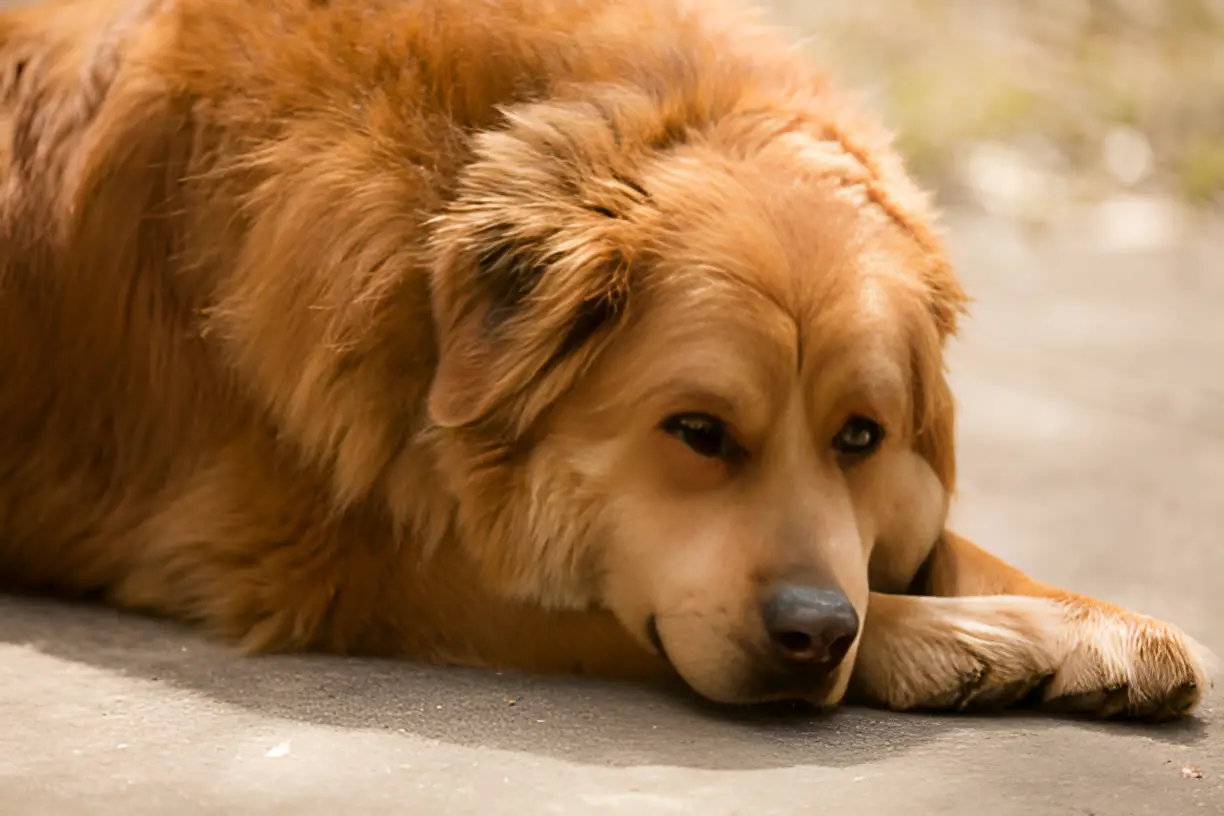Yes, Goldadors can experience separation anxiety, especially if they are left alone for extended periods without proper training and socialization. Goldadors, a crossbreed between Golden Retrievers and Labrador Retrievers, are known for their friendly, loyal, and affectionate nature. These traits make them wonderful companions, but they can also contribute to separation anxiety if not managed properly. This comprehensive guide will explore the causes, symptoms, and solutions for separation anxiety in Goldadors, providing valuable insights for pet owners.
Understanding Separation Anxiety in Goldadors
What is Separation Anxiety?: Separation anxiety is a condition in which a dog experiences extreme distress when separated from their owner or left alone. This can manifest in various behaviors, including excessive barking, destructive behavior, and attempts to escape.
Why Goldadors?: Goldadors are particularly prone to separation anxiety due to their strong attachment to their owners and their social nature. Both parent breeds, Golden Retrievers and Labrador Retrievers, are known for their loyalty and need for companionship.
Causes of Separation Anxiety in Goldadors
Lack of Socialization: Dogs that are not properly socialized may become overly dependent on their owners and struggle with being alone. Early socialization helps build confidence and independence.
Changes in Routine: Sudden changes in a dog’s routine, such as a new work schedule or moving to a new home, can trigger separation anxiety. Dogs thrive on consistency and predictability.
Previous Trauma: Dogs that have experienced trauma, such as being abandoned or rehomed multiple times, are more likely to develop separation anxiety. These experiences can create a fear of being left alone.
Genetic Predisposition: Some dogs may be genetically predisposed to anxiety. Goldadors, with their sensitive and affectionate nature, may be more susceptible to separation anxiety.
Symptoms of Separation Anxiety
Excessive Barking or Howling: Dogs with separation anxiety often vocalize their distress through barking or howling, especially when left alone.
Destructive Behavior: Chewing furniture, digging, and scratching at doors or windows are common behaviors in dogs with separation anxiety. These actions are often attempts to escape or cope with stress.
Pacing and Restlessness: Dogs may pace back and forth or exhibit other restless behaviors when they sense their owner is about to leave.
House Soiling: Even house-trained dogs may urinate or defecate indoors when experiencing separation anxiety. This is a sign of extreme stress and should be addressed promptly.
Escape Attempts: Dogs with severe separation anxiety may try to escape from their home or crate, risking injury in the process.
Solutions and Management Strategies
Gradual Desensitization: Gradually accustom your Goldador to being alone by starting with short periods and gradually increasing the duration. This helps them learn that being alone is not something to fear.
Create a Safe Space: Provide a comfortable and secure area for your dog to stay when you are not home. This can be a crate, a specific room, or a designated area with their bed and toys.
Interactive Toys and Puzzles: Keep your dog occupied with interactive toys and puzzle feeders. These can provide mental stimulation and distract them from your absence.
Exercise and Mental Stimulation: Ensure your Goldador gets plenty of physical exercise and mental stimulation. A tired dog is less likely to experience anxiety and engage in destructive behaviors.
Consistent Routine: Maintain a consistent daily routine for feeding, exercise, and alone time. Predictability helps reduce anxiety and provides a sense of security.
Positive Reinforcement: Use positive reinforcement to reward calm behavior. Treats, praise, and affection can help reinforce that being alone is not a negative experience.
Professional Help: If your dog’s separation anxiety is severe, consider seeking help from a professional dog trainer or behaviorist. They can provide tailored strategies and support to address the issue.
Preventing Separation Anxiety in Goldadors
Early Socialization: Start socializing your Goldador puppy early. Expose them to different people, environments, and experiences to build their confidence and independence.
Training: Basic obedience training helps establish a strong bond and clear communication between you and your dog. Commands like “stay” and “wait” can be particularly useful in managing separation anxiety.
Gradual Departures: Practice leaving and returning home without making a big fuss. This helps your dog understand that your departures and arrivals are normal and not cause for alarm.
Independence Training: Encourage your dog to spend time alone while you are at home. This can be done by providing them with a special toy or treat in another room.
Conclusion
Goldadors can indeed experience separation anxiety, but with proper training, socialization, and management strategies, you can help your dog overcome this condition. Understanding the causes and symptoms of separation anxiety is the first step in addressing it effectively. By providing a consistent routine, mental stimulation, and positive reinforcement, you can ensure your Goldador remains a happy and well-adjusted companion.
The photo featured below the post headline is Credit: fstop123/istockphoto
I hope you find this post helpful and informative. If Yes’ feel free to share it with your friends!
Frequently Asked Questions
How can I tell if my Goldador has separation anxiety?
Signs of separation anxiety include excessive barking, destructive behavior, pacing, house soiling, and escape attempts when left alone.
Can separation anxiety be cured?
While separation anxiety can be managed and significantly reduced, it may not be completely cured. Consistent training and management strategies are essential for long-term success.
Is it okay to crate my Goldador when I leave the house?
Yes, crating can provide a safe and secure environment for your dog. Ensure the crate is comfortable and associated with positive experiences.
How long can I leave my Goldador alone?
The amount of time a dog can be left alone varies. Gradually increase the duration and monitor your dog’s behavior to determine their comfort level.
Should I get another dog to help with my Goldador’s separation anxiety?
While another dog can provide companionship, it is not a guaranteed solution for separation anxiety. Addressing the root cause through training and management is crucial.

